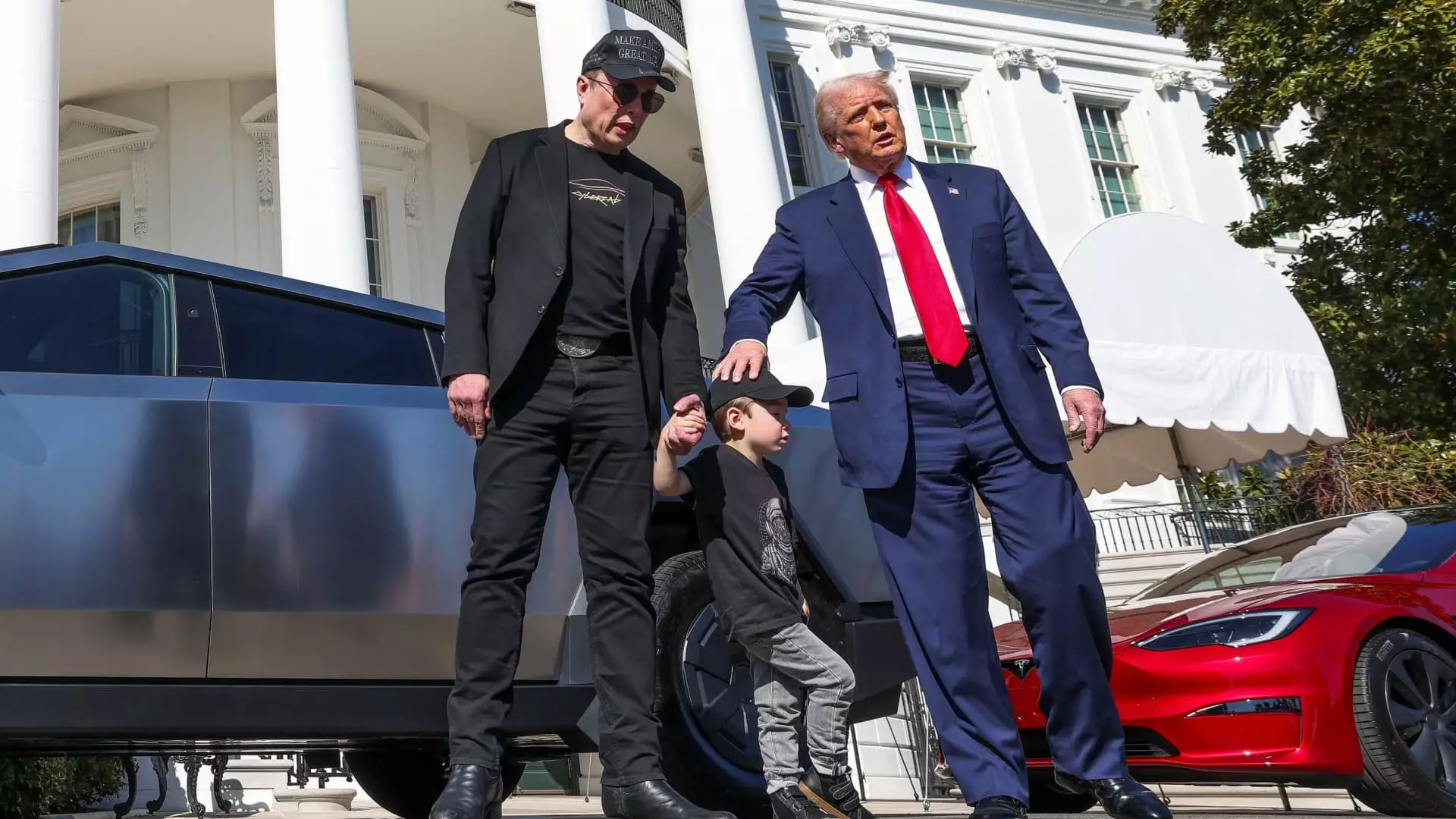In today’s convoluted economic environment, balancing tariffs has emerged as a contentious point of discussion among business leaders, particularly in the automotive industry. Elon Musk, the visionary CEO of Tesla, recently made headlines during a quarterly earnings call when he voiced his concerns regarding unpredictable and high tariffs. This sentiment holds weight, especially amidst the unpredictable trade policies coming from the highest offices in the land. Musk’s thoughtful observations reveal not only his unique position within the corporate world but also underscore the dire implications that tariffs can have on the broader economy.
It’s crucial to recognize that while Musk’s comments reflect a significant degree of discontent with tariffs, his stance is carefully rooted in self-interest. At a time when other American automakers grappled with chilling declines in revenue—reporting a staggering 20% drop in automotive revenue and a 71% plunge in net income, Tesla appears to be in a more fortified position, largely due to its localized supply chains. This geographical strategy may cloak Tesla from some external shocks, but it does not eliminate the gloom surrounding tariffs entirely.
Localized Supply Chains: A Double-Edged Sword
Musk’s assertion that Tesla is the “least-affected car company” amid tariff concerns raises questions about how localized supply chains can be a double-edged sword. While they insulate the company from certain tariff impacts, they do not necessarily shield it from the cascading effects of global supply chain disruptions. Musk acknowledged that Tesla’s reliance on materials sourced globally—particularly from countries like China, Mexico, and Canada—introduces vulnerabilities. The irony is palpable: a company striving for innovation and autonomy still finds itself ensnared in the complexities of international trade.
Moreover, Musk’s candid reflections on the supply of lithium iron phosphate battery cells, essential for electric vehicle manufacturing, underscore a critical dilemma. While Tesla invests in local manufacturing, Musk candidly admits the challenge of scaling operations. This juxtaposition of ambition against practical constraints illustrates how tariffs can stifle not merely corporate growth but also the broader goal of advancing clean energy initiatives.
A Leader with a Divided Voice
Musk’s relationship with the current administration positions him uniquely at the intersection of business and politics. His close ties to former President Donald Trump, combined with outspoken critiques of Trump’s trade advisor, Peter Navarro, spotlight an intriguing paradox. Tension arises from Musk’s call for lower, more predictable tariffs juxtaposed against the broader populist trade agenda espoused by many in the administration.
Despite Musk’s declared advocacy for free trade, which is a cornerstone of centrist liberalism, the reality is fraught. This presents a cognitive dissonance for Musk and other business leaders: How can one simultaneously be a champion of free-market principles while operating within a regulatory landscape that endorses protectionism? Musk’s call for thoughtful tariff strategy places him in a delicate balancing act—catering to his business ambitions while attempting to align with a government strategy that could potentially undermine the very progress he seeks to champion.
The Consequences of Tariff Policy on Innovation
As Tesla navigates these economic waters, the implications of tariffs extend beyond financial figures—they have the potential to stifle innovation itself. Musk’s emphasis on “predictable tariff structures” speaks to a broader concern that unstable trade environments could hinder businesses’ ability to invest in research and development. Innovation thrives in stable conditions, and if companies are preoccupied with tariff volatility, they may be less likely to pioneer the next big technological advancement.
Indeed, the world is watching as leaders like Musk call for a reevaluation of tariff policies. The challenges he faces as a CEO echo a larger narrative about the intersection of economic strategy and innovation. The fate of electric vehicles, sustainable energy solutions, and even the stability of the automotive industry hangs in the balance—further emphasizing how pivotal thoughtful economic policies are in shaping our collective future.
Elon Musk is right to speak up about the impact of tariffs, and while some may view his stance as self-serving, it presents an opportunity to reflect on a more comprehensive approach to economic policy—one that emphasizes innovation and, importantly, collaboration over contention. This dialogue must evolve if we are to fully harness the potential of modern industry while embracing the ideals of free trade and responsible economics.


Leave a Reply